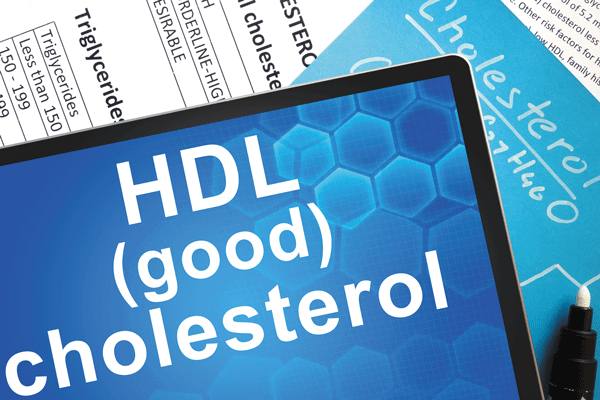
Tips to leverage neuroplasticity to maintain cognitive fitness as you age

Can white noise really help you sleep better?

Celiac disease: Exploring four myths

What is prostatitis and how is it treated?

What is Cushing syndrome?

Exercises to relieve joint pain

Think your child has ADHD? What your pediatrician can do

Foam roller: Could you benefit from this massage tool?

Stepping up activity if winter slowed you down

Common causes of cloudy urine
Men's Health Archive
Articles
Treatment versus monitoring of prostate cancer: Survival rates the same after 10 years
Two new studies add to the evidence that for many men with prostate cancer, if it is detected early and has not metastasized beyond the prostate gland, monitoring the cancer will lead to the same chance of survival after 10 as choosing surgery or radiation. Men treated with surgery or radiation often experience significant side effects. The rates of depression and anxiety were the same in men who opted for monitoring and those who opted for treatment.
HDL cholesterol: How much is enough?
Research suggests that raising good cholesterol beyond a certain point doesn't offer any extra benefit for the heart.
Image: designer491/Thinkstock
When it comes to cholesterol, it's mostly about the numbers. You want less of the "bad" low-density lipoprotein (LDL) cholesterol and more of the "good" high-density lipoprotein (HDL) kind. This combination is often associated with a lower risk of cardiovascular disease. Sounds simple—and it is, for the most part. But while most attention is spent on driving down bad LDL, you still have to keep your eyes on the good HDL, as some research suggests that after a certain threshold, higher levels don't offer extra protection.
The role of cholesterol
Balancing act
One reason higher HDL may not always be effective is that it needs help to do its job. Another study found that HDL's protective role depends in part on the levels of both LDL and triglycerides (another type of blood fat that helps make up your total cholesterol).
The research, published online May 10, 2016, by Circulation: Cardiovascular Quality and Outcomes, analyzed data over 25 years on about 3,500 people. Researchers looked at people with both low and high HDL levels and those with normal and high levels of LDL and triglycerides.
They found that for optimal protection against cardiovascular disease, there needs to be a balance among all three. Higher HDL (40 mg/dL or higher) helped to reduce cardiovascular disease only when LDL and triglycerides were low (100 mg/dL or less). When LDL and triglycerides rose above 100 mg/dL or 150 mg/DL, respectively, higher HDL had no effect.
The ideal numbers
Men: talk with your doctor about resuming sex after a heart attack
A majority of men do not talk about resuming their sex life after a heart attack, which may lead to sexual problems like lack of interest and erectile difficulties. Researchers say that before being discharged from the hospital, men should expect to have a conversation with their physician about when it’s okay to resume all regular activities, including sex. If the topic does not come up, men should take the initiative.
Throughout life, heart attacks are twice as common in men than women
Throughout life, men seem to be twice as likely to have a heart attack as women. This risk appears to persist even after accounting for risk factors such as high cholesterol, high blood pressure, and diabetes.
Ask the doctor: Herbal supplements to treat erectile dysfunction?
Herbal supplements are sometimes advertised to improve a man’s sex life by increasing blood flow to the penis, but many are not proven effective for treating ED and may cause serious side effects.
Treatment versus monitoring of prostate cancer: Survival rates the same after 10 years
Charles Schmidt A pair of new studies provides useful information to men facing challenging decisions about what to do after being diagnosed with early prostate cancer. Researchers tracked men for 10 years and found that virtually none died of the illness, even if they decided against treating it. Early prostate tumors confined to the prostate […]
Dry skin? Moisturizers can help
Many products are designed to absorb water into the skin, keep it from evaporating, or both.
Image: Bigstock
If you grew up watching Doris Day movies, you may have assumed she was privy to skin treatments that weren't available to the general public. However, as she revealed in her autobiography, Vaseline (petrolatum) was the key to keeping her skin soft and smooth.
Things have changed quite a bit in the last 50 years. Petrolatum is still a popular staple, but there is now a dizzying array of newer moisturizers, many with a baffling list of ingredients on their labels. However, they all are designed to either add moisture to the skin or keep it there. Many do both. "Think of moisturizers as putting a barrier between your skin and the cold, dry air," says Dr. Kenneth Arndt, professor of dermatology at Harvard Medical School and faculty editor for the Harvard Health Publications Special Health Report Skin Care and Repair (www.health.harvard.edu/SCR.)
Talk to the animals
Animal-assisted therapy can be your best friend when it comes to mental support.
Image: Jevtic /Thinkstock
They say a dog is man's best friend, but when it comes to better health, any type of animal bonding will do.
Research shows that interaction with animals like dogs, cats, and even horses can have both immediate and long-lasting impacts on your mental well-being. Done more formally in a medical context, it's known as animal-assisted therapy (AAT).
Should I worry about a heart murmur?
Heart murmurs can occur when people are young and then return in older age. There are three main causes in adults: increased volume or speed of blood flowing through a normal heart, a stiff heart valve, or a leaky heart valve. Most do not lead to heart problems, but a change in the murmur’s intensity or the appearance of symptoms like shortness of breath, light-headedness, or chest pain would prompt a further medical evaluation.

Tips to leverage neuroplasticity to maintain cognitive fitness as you age

Can white noise really help you sleep better?

Celiac disease: Exploring four myths

What is prostatitis and how is it treated?

What is Cushing syndrome?

Exercises to relieve joint pain

Think your child has ADHD? What your pediatrician can do

Foam roller: Could you benefit from this massage tool?

Stepping up activity if winter slowed you down

Common causes of cloudy urine
Free Healthbeat Signup
Get the latest in health news delivered to your inbox!
Sign Up







